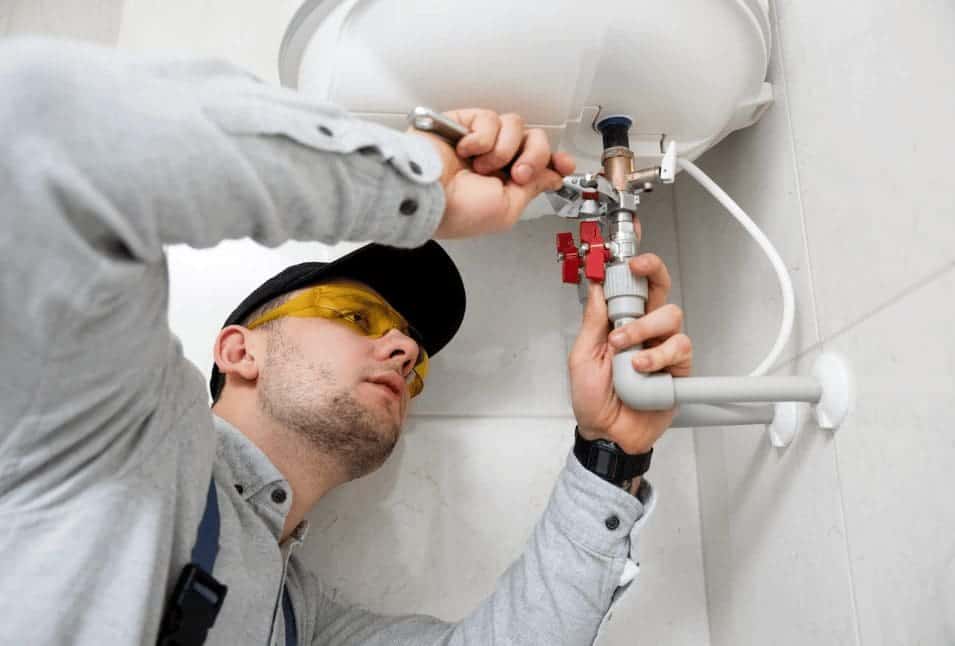Table of Contents
Central Heating Repair
Let’s Heat central heating engineers perform a range of central heating repairs. We also carry out maintenance checks. Our aim is to keep your home warm, safe and efficient when it comes to using energy. So if you are looking for central heating repair in Barry, you’ve come to the right place. A home that is well heated in winter is essential for both your comfort and for keeping your property in an excellent condition. Our maintenance and repair service can keep your central heating system running smoothly and save you money in the long run.
Our service includes a variety of checks to make sure that your system is working as it should. These might include:
- Checking your pipes, boiler and radiators for any problems
- Looking for any blocked, broken or leaking water pipes
- Doing a check to see if you have hot water problems or low water pressure
A central heating system which is faulty can lower your energy efficiency as well as increase the possibility of breakdown and expensive repairs. We provide reliable central heating repair to keep your home warm and energy-efficient.
We provide Central Heating Flushing for Radiators and Pipes
Power flushing helps remove sludge and debris from your heating system that can accumulate from collecting or sitting water. The build-up of debris can create serious blockages and faults in your radiators, pipework, and heat exchangers, which as a result, can quickly lead to failure. Power flushing sends water at extremely high speed through the system, dislodging built-up debris and limescale.
Central Heating Services in Barry
Central heating systems have a variety of benefits for homeowners. First and foremost, they can help reduce utility bills throughout the year, granted that they are installed properly and are well-maintained. Their efficiency in saving energy might reach as high as 30% in some cases. Getting the latest A-rated central heating system can be a wise investment as they come with heating controls that make them more energy efficient. If you are looking for Central Heating Services, then you’ve come to the right place. Central heating can help to prevent the development of certain health conditions such as bronchitis, hypothermia and asthma. It is also able to counteract condensation and growing mold. What is more, those units which are powered by gas are environmentally friendly and they can help reduce carbon dioxide emissions. You can rely on central heating to keep your house warm and cosy during the cold months of winter. We work with and can handle different types of Central heating systems such as gas, oil or solar-powered units. Moreover, we can design and build reliable systems for your home. If you want peace of mind, then it is recommended that you hire a professional gas engineer. With regular central heating services, you can keep your system running smoothly and efficiently. This, as a result, can help cut down expenses when it comes to your energy bills. You will benefit from improved health due to the fact that Central heating systems can be better than convection heating systems. With a central heating system in your home, you can beat certain conditions such as allergies or asthma.
Is regular central heating service important?
When you regularly have your central heating system serviced, you can prevent breakdowns and different problems. That is why it is recommended that you have your system checked before winter to ensure that it is running without any issues. Our gas engineer will check your system for any faults and faulty parts. He will inform you of what needs to be fixed or replaced. Regular servicing of your central heating system can detect if there are any gas or carbon dioxide leaks. If your system is not running efficiently, then it can cost more when it comes to running the system.
What is involved in central heating service?
When it comes to central heating service, there are several jobs involved. Let’s take a look at some of the most important central heating services:
Getting your heating started
You will need a central heating system fitted if you have a newly-built home. The parts needed for your system will depend on what kind of boiler you are using. Our heating engineer is able to do the various jobs involved such as installing a boiler, radiators, water storage tank, controls, expansion vessels and valves.
Replacement parts
Replacing a faulty component in your boiler can sometimes be the most cost-effective approach to a breakdown. Our professional heating engineer is capable of providing part replacement services to a very high standard.
Maintaining your central heating system
In order to keep your home warm and cosy, maintaining your central heating system is important. Our professional gas heat engineer is qualified to carry out maintenance services. A heating professional has the necessary technical knowledge and skills to deal with your central heating system. Your system will be inspected using the latest tools. The system will be checked for any broken parts or issues. Any broken parts will be fixed or replaced if necessary.
annual servicing
To ensure that your central heating is working as it should without breakdowns, annual service of your heating system is essential. A faulty heating system is both costly and can be a safety hazard. Carbon dioxide leak is not something to be taken lightly as it can be dangerous to your safety. With regular servicing, our heating professional will do his best to ensure that everything is running smoothly and safely. This will ensure your safety as well as prevent wasting energy.
When do I need new central heating?
Low efficiency.
Heating systems tend to lose efficiency over time. Your heating system might take longer to heat your home. Another sign would be if you start getting higher energy bills than you’re used to. By getting a new boiler, you can extend the lifespan of your heating system and save energy as well. Modern technology tends to be more efficient when it comes to energy consumption.
Age.
Age can be a huge indicator that a boiler is not working as it should. It is recommended that a boiler should be replaced after 10 to 15 years. If your system is getting old, too, then it is advisable to replace it as well.
High repair cost.
If the cost to repair your system is too high, then it might not be worth repairing. In some cases, replacing your entire system might prove to be cheaper and more beneficial.
How does a heating system work with my boiler?
3 types of boilers are used with a wet central heating system. These include: combi, system and regular boilers.
Combi boilers
Most homes have combi boilers installed. With a combi boiler there will be no need for a cylinder or a water tank. A combi boiler is a compact heating system which includes everything needed to heat a home put into the one sealed central heating system within the boiler. A combi boiler would heat water directly from the mains supply and send it straight to your taps when hot water is needed. This type of heating system is recommended for houses with 1-2 bathrooms as it can limit the amount of water provided. However, it is space-saving.
System boilers
A system boiler takes the water from the mains. So that means no water tank is needed in the loft space. They are able to heat the radiators directly when needed. They can also store hot water in a cylinder. This cylinder enables them to meet high water demand for hot water in homes with multiple bathrooms.
Regular boilers
Regular boilers or heat-only boilers are the oldest type of boilers. They’re also called traditional or conventional boilers. Although they are pretty outdated by today’s standards, they are still installed and used, especially in old properties. This heating system consists of a boiler, a hot water cylinder, a feed and expansion tank. Cold water stored in the feed tank will be sent down to the boiler when heating is turned on. As water is heated, it expands. That’s why the expansion tank is used, in order to offer additional space for the expanded water. As for the hot water cylinder, it will store domestic hot water until it is needed to be used.
What is the best type of heating system?
The most efficient way to heat a home will be by using a wet central heating system along With a relatively new gas boiler. Switching to an alternative type will not be to your advantage, efficiency-wise and financially. However, if you want to switch to a renewable energy source in order to reduce your carbon footprint, then you can use a hybrid heating system. This means that you can pair your current boiler with a heat pump. If your boiler is 15 years old, it means it’s not efficient enough. In this case you will be wasting both money and energy. Modern boilers are made to be more energy-saving and environmentally friendly. What is more, as boilers get older, they start to convert less of the energy they use to heat. If your boiler is older than 10 years, it might lose up to 30% of its efficiency.
Our Facebook Page.
FAQ’s
Does central heat use gas or electricity?
Central heating can be powered by a variety of energy sources such as solid fuels (such as wood), water/steam, petroleum and other liquids, electricity, heat pumps, and natural gases. The most common forms of central heating are electricity and gas because they are the easiest to maintain.
What is the lifespan of a central heating system?
Generally speaking, most HVAC systems will last 15 to 25 years, but depending on the type of system and other contributing factors, that estimate can be highly variable.
What are the symptoms of a failing heating system?
- No heat
- Strange smells
- Thermostat indicators
- Strange sounds
How do I know if I have central heating?
You can tell by checking if you have a furnace, it is typically located centrally in the home. Areas to check could be a utility closet, garage, attic or basement. If you have a heat pump, it would be located outside of the home.
Does central heat use gas or electricity?
Central heating can be powered by a variety of energy sources such as solid fuels (such as wood), water/steam, petroleum and other liquids, electricity, heat pumps, and natural gases. The most common forms of central heating are electricity and gas because they are the easiest to maintain.





